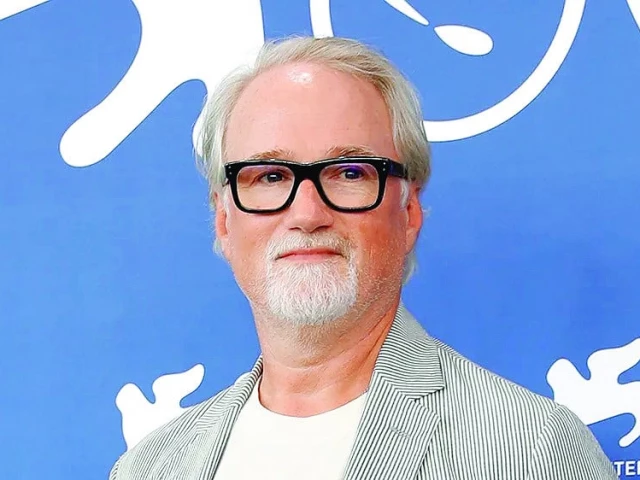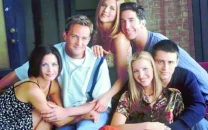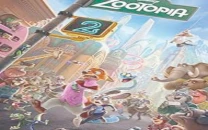From the director's desk
David Fincher reveals he almost directed the 'Harry Potter' franchise

David Fincher, the filmmaker behind modern classics like Seven, Fight Club, and The Social Network, is known for his celebrated successes but also by a long list of projects that either shifted to other hands or never materialised at all.
In a recent interview with Variety tied to the 4K re-release of his 1995 thriller Seven, Fincher shed light on one particularly intriguing near miss: the Harry Potter franchise. While Warner Bros ultimately opted for a more conventional approach to JK Rowling's globally beloved series, Fincher had a vision that was anything but ordinary.
"I was asked to come in and talk to them about how I would do Harry Potter," Fincher told Variety. "I remember saying, 'I just don't want to do the clean Hollywood version of it. I want to do something that looks a lot more like Withnail and I want it to be kind of creepy.'"
However, Warner Bros. had a different tone in mind. "They were like, 'We want Thom Browne schooldays by way of Oliver.'" Fincher's darker, more atmospheric interpretation was not the match the studio sought for their blockbuster adaptation of the boy wizard's journey.
This missed opportunity, like many in Fincher's career, reflects both the specificity of his artistic perspective and the often-unpredictable nature of Hollywood's development cycle. Projects like the sequels to The Girl With the Dragon Tattoo and World War Z or the long-rumoured adaptation of Arthur C Clarke's Rendezvous with Rama are reminders of how even the most in-demand directors sometimes see their visions stalled by forces beyond their control.
Drawing him in
Yet, Fincher's body of work remains a testament to his ability to channel his distinctive sensibilities into projects that align with his creative instincts. Discussing his attraction to specific stories, Fincher emphasised that commercial viability isn't what typically draws him in.
"Is there a built-in audience? That's somebody else's job," he stated. "Those books get sold to movie studios when it's shown that there's a built-in audience, so I'm usually coming into the food chain after it's been decided that this is something tasty. I was interested in Gone Girl in spite of the fact that it was a bestseller I liked the idea of punishment for our narcissistic leanings as it relates to finding a mate."
Fincher elaborated on his connection to The Girl With the Dragon Tattoo, a film that blended his affinity for deeply flawed characters with a cold, atmospheric setting. "With Dragon Tattoo, I'm much fonder of Chinatown and the shoe leather in that than I am in any hacker thing. But I loved this broken girl who's given a chance to do research with this guy that she's not quite so sure about. And I don't even know that he's kind to her; I think he just treats her the way you want to be treated, and for her, this is so revelatory."
Fincher also pointed out the haunting backdrop of Sweden as a key element that drew him to the story. "If you've ever been to Sweden, you're talking about a country about the size of California with the population of LA County. There's a lot of room in them thar hills for serial killers and for dumping bodies. And I loved the idea of really, truly getting winter across in an investigation."
Reflecting on The Social Network, Fincher described Aaron Sorkin's script as "just a script that you couldn't put down." For Zodiac, the personal connection was even more profound. "[The Zodiac killer] was a boogeyman when I was a seven-year-old, and I was kind of going through the process the main character was going through - what happened? I felt kindred to that."
Fantastical works
Fincher's fascination with the emotional core of his stories extends even to his more fantastical works. Speaking about The Curious Case of Benjamin Button, he offered a characteristically wry observation: "I loved the idea of a romance with that kind of body count," he said, laughing.
While each of his films is unique in setting, tone, and subject matter, they all share a common foundation: Fincher's deeply personal engagement with the material. "There are different things about stories that resonate with you based on movies you love and the kind of movies that you made," he explained. "So, I don't know how I choose things to be involved with, but you get a hankering where you go, 'I'd like to see this, and I'd like to see it done this way.'"
Fincher's upcoming slate includes intriguing prospects: an American adaptation of Netflix's global hit Squid Game and a Chinatown prequel miniseries co-written with the late Robert Towne. Both projects align with Fincher's preference for morally complex narratives that defy easy categorisation.
Ultimately, what drives Fincher isn't mass appeal but rather a spark of curiosity, a moment of intrigue that refuses to let go. "I like the idea that you can kind of pick and choose where you're going to spend your efforts - what you're going to underline, and what you're going to blur."



















COMMENTS
Comments are moderated and generally will be posted if they are on-topic and not abusive.
For more information, please see our Comments FAQ